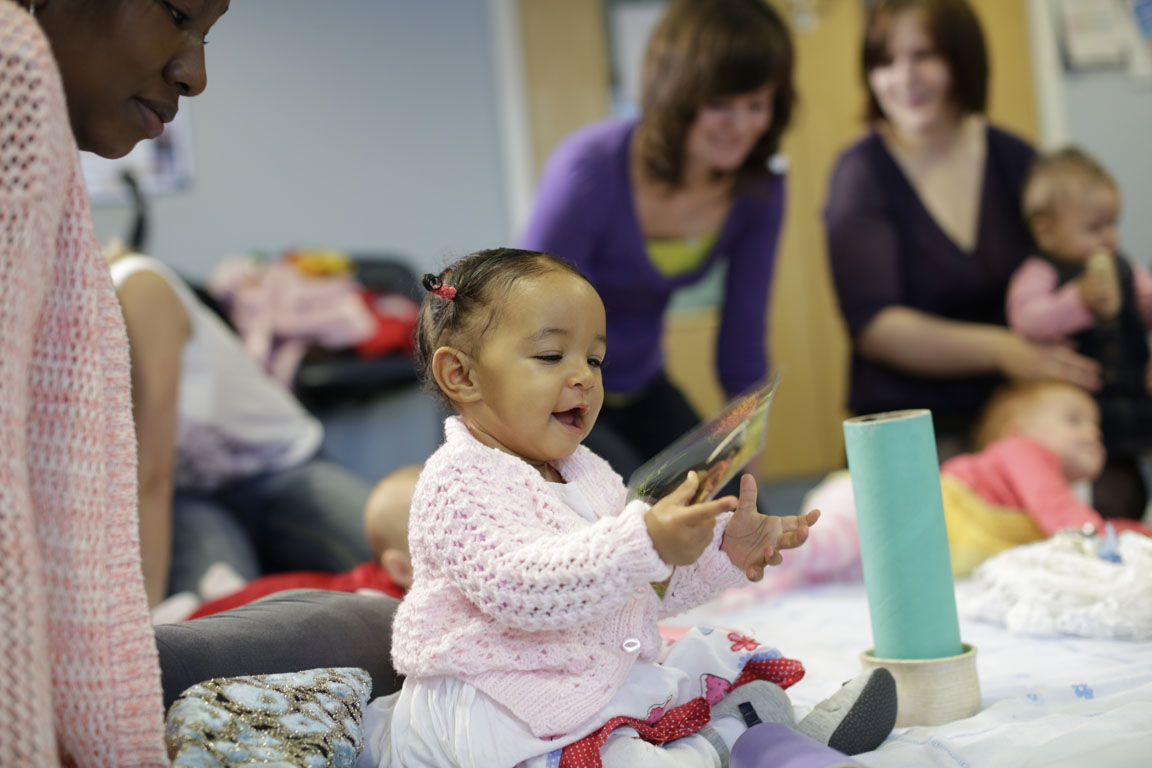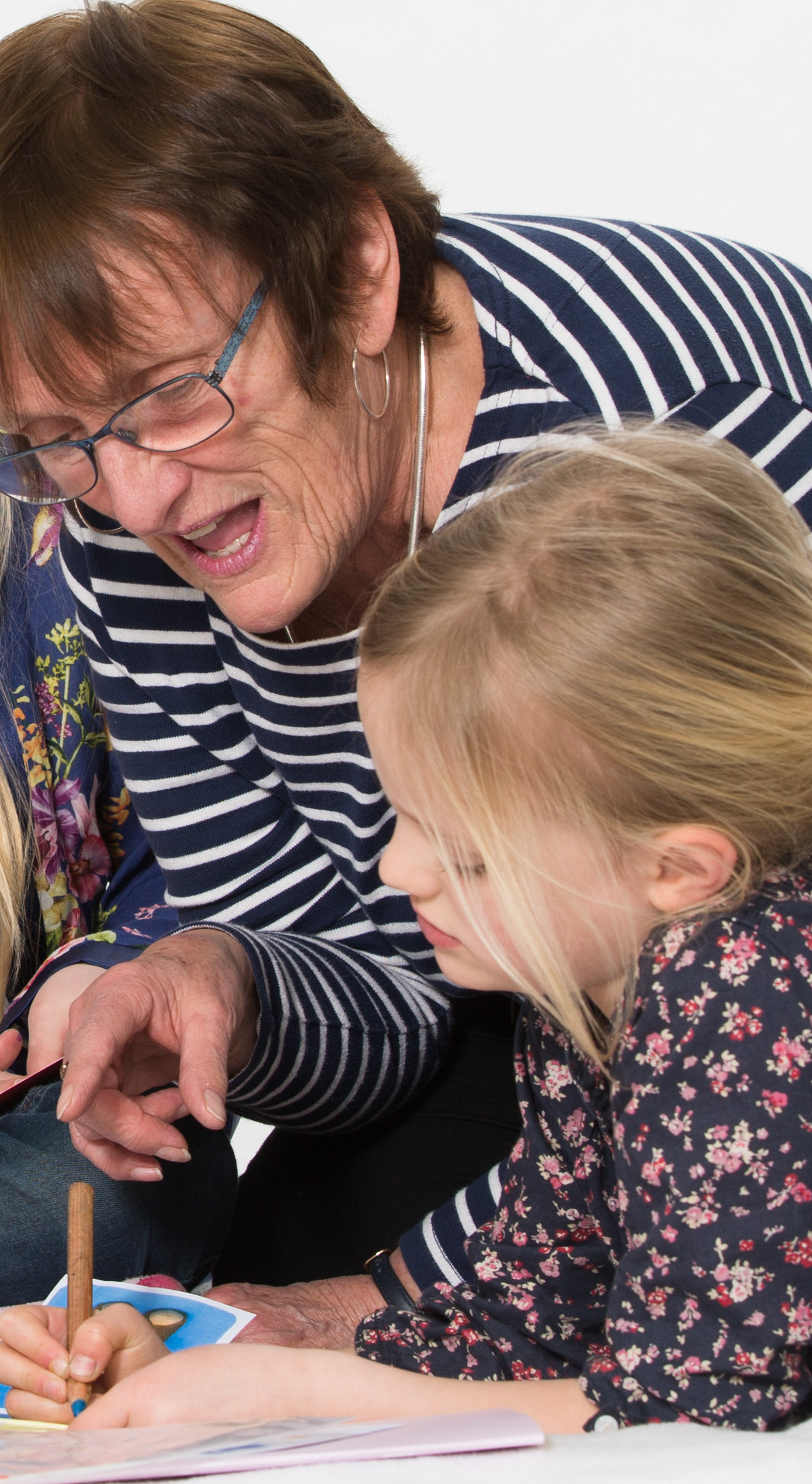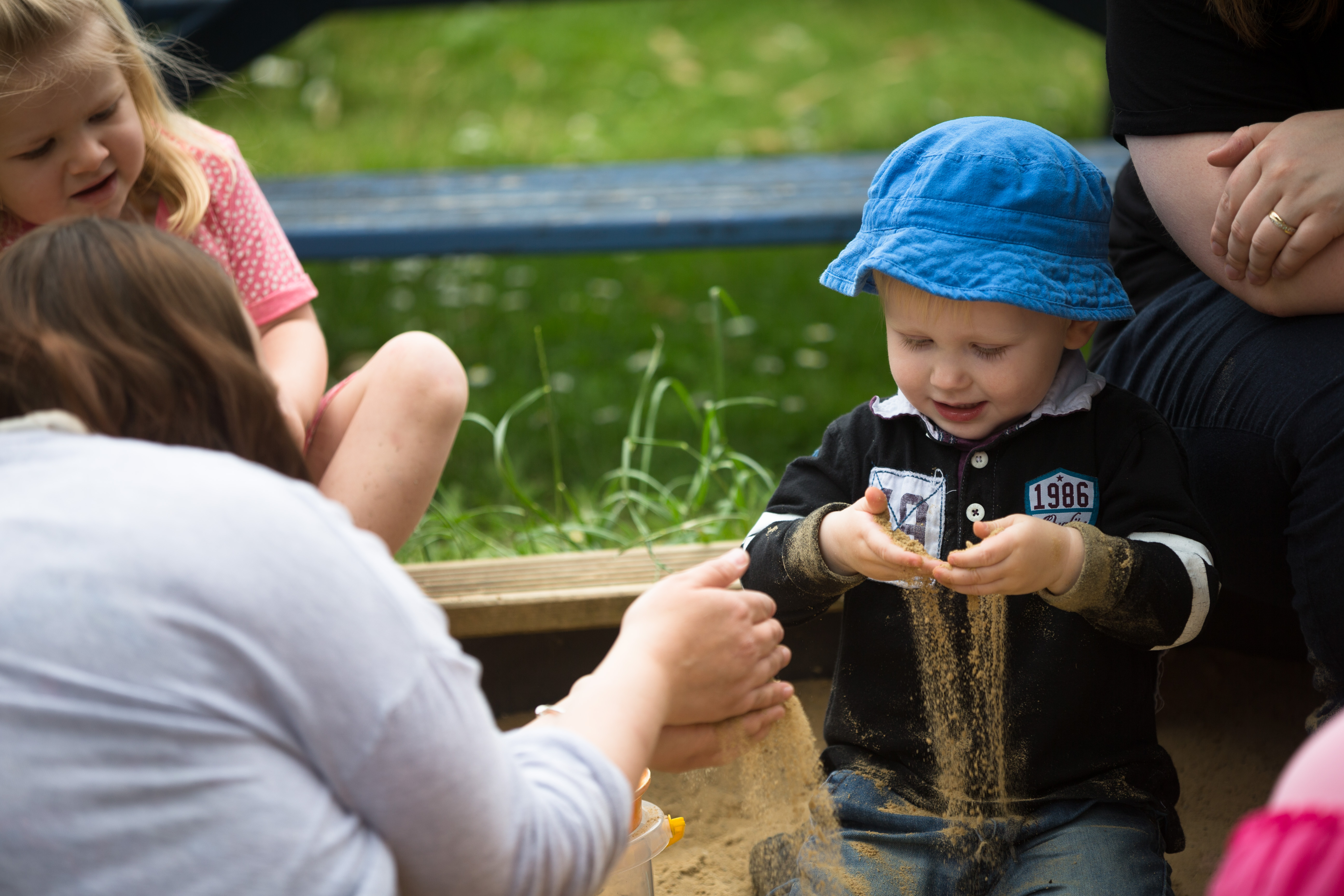Orange
peeple centre - local delivery
 Our work in Oxfordshire keeps us grounded in the reality of parents and young children learning together. It’s also lots of fun! Delivering the programme with families informs our training and provides continuing evidence of the effectiveness of our programmes.
Our work in Oxfordshire keeps us grounded in the reality of parents and young children learning together. It’s also lots of fun! Delivering the programme with families informs our training and provides continuing evidence of the effectiveness of our programmes.
Peeple Centre
At the Peeple Centre in south Oxford we have been working with local families, using the Peep Learning Together programme, since 1995. This is the only place that we employ our own Peep practitioners, who work in the Leys and are part of our collaborative Growing Minds project with Home-Start Oxford and The Berin Centre, in Littlemore and Berinsfield. We also have our own Little Peeple Nursery just round the corner.
We train practitioners employed by other organisations, who are using the Peep Learning Together Programme around the UK, Ireland and Australia. The programme is used in outreach work, groups and drop-ins sessions, with parents/carers and their children from birth to school.
We work in partnership with local health, education and voluntary sector organisations to provide a wide range of Peep delivery in Oxfordshire. We were involved in establishing and running a couple of local children’s centres, before local authority funding cuts.
Peep with families - Delivery Team in Oxfordshire
If you’re pregnant or a parent/carer of a 0-5 year old in Greater Leys, Blackbird Leys, Littlemore or Berinsfield in Oxford/shire, or a professional working with families in these areas, please contact us to find out more about free Peep Learning Together sessions:
Tel 01865 395145 or email families@peeple.org.uk or find out more: www.peeple.org.uk/parents-area
The list below shows some of the kinds of delivery that we've been involved in locally, with links to give you an idea of what that work entails.
peeple centre -
local peep delivery in Oxford
Feature box colour:
find out more or book training
tel 01865 397 970
training@peeple.org.uk
> dates & booking
> in-house training
> training courses
> sign up to our e-newsletter

Side Quote Color:
- Read more about peeple centre - local delivery
- Log in or register to post comments
projects




projects
and partnership work
in Oxfordshire and beyond
Feature box colour:




- Read more about projects
- Log in or register to post comments
music moves: intercultural approaches to connecting through music
The aim of this action research project was to make music accessible to families with preschool children, especially families who, for diverse reasons may not access mainstream services. Activities took place in Luton, Birmingham and Oxford.
Music leaders liaised with local children’s centre professionals including family support and health workers to:
- establish an integrated approach that helps families to access music provision, and which benefits services to support families
- promote music making as a valued part of provision for families
- raise expectations of what families can do and participate in musically
- develop practical strategies and approaches that are helpful and accessible to families.
Phase one involved interviews with parents about their existing musical interests and experiences with their children, to inform approaches and with professions about their views on using music with families. Phase two involved direct delivery of musical sessions with families over 20 weeks, and reflective sessions with the musical leaders.
Music Moves ran for two terms, from Sept 2011 to end of March 2012. The project was administered through St Thomas Centre in Birmingham, headed up by Cynthia Knight. It was funded by Youth Music and evaluated by Dr Susan Young from the University of Exeter.
The project contributed to the production of a CD of rhymes and lullabies and to the development of a training day in ‘Working with South Asian Families’. Dr Alison Street and Nuzhat Abbas reflected on this project in a paper they presented at the Music Educators and Researchers of Young Children (MERYC) conference:
> Music Moves: the development of intercultural approaches to engage musically with ‘hard to reach’ families
music moves
connecting through music
Feature box colour:

Side Quote Color:
enabling parents study
This independent study examined the impact of the Peep programme for parents/carers. It compared 75 mothers who had attended a Peep group with an equal number of mothers who were individually matched on demographic characteristics and were living in an area with a very similar socio-economic profile, but with no access to Peep.
key findings
The study found that Peep parents, compared to the non-Peep parents:
- reported significantly greater awareness about how to help their child's literacy development
- improved their socio-economic status (as measured by their job)
- took more courses, particularly in basic skills.
Parents also considered Peep to be a source of support and encouragement.
The full report or key findings of the Enabling Parents Study can be downloaded here. The study was carried out by Professor Kathy Sylva and her team at the University of Oxford (2008).
Peep also offers parent accreditation based on everyday activities that parent and child do together, recorded in a portfolio or scrapbook. As well as being a lasting memento, the accreditation can also act as a stepping stone for parents’ own learning.
Feature box colour:

Side Quote Color:
education case studies - settings, schools and adult learning
The Peep Learning Together Programme can be used within pre-schools, school or nursery classes and childcare settings. Sometimes this is for new families, when a Transition Peep course is offered to families, but the programme is also used during regular sessions.
In Fife, practitioners have been Peep-trained in all their nursery settings, so that Peep sessions can be offered to nursery children and parents -
> follow this link to watch Fife's video clip about Peep nursery staff and families
It's about five minutes, and gives a flavour of the way that the Peep practitioners value and build on what parents are already doing at home, so they can support the young children's learning together.
Using the Programme in these ways provides a range of activities and opportunities for discussion, which encourage adults’ involvement in their children’s learning. Research shows that when parents are welcomed into schools and pre-schools, it benefits children, parents and teachers. The Peep programme, with its information and activities for professionals and parents/carers, can support teachers to engage with parents in their setting, and help enhance what families are already doing at home.
> Transition into pre-school, nursery or school - overview - how it enhances school readiness and parental engagement
> Transition into school reception class in Hampshire
> Transition from nursery into school in Edinburgh
> Preparing and sharing mealtimes in nursery and home in Highland
> Peep in high schools in Moray - health and home school link workers, families and pupils (developing the young workforce)
> Childcare students - one-off secondary school session in Lancashire
> Multi-agency Peep in Dundee - nursery settings, adult learning etc
Feature box colour:
‘Peep has given me more confidence in helping my child. Also knowing what they do in foundation and then being able to continue this at home. Excellent.’
Side Quote Color:

Our Values
our values
Feature box colour:

